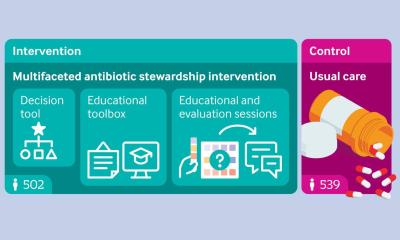DRUG resistance III
Antibiotic Armageddon in Europe by 2025
A group of leading scientists has warned that Britain and Europe collectively could face more than a million deaths in an impending "Antibiotic Armageddon” unless more is spent on developing new cures, rapid diagnostics and preventative measures to combat the spread of drug resistant diseases.

Experts at the European Society of Clinical Microbiology and Infectious Diseases have warned that without more money being spent on developing new drugs and the rationing of existing supplies, deaths across Europe could pass the grim milestone of a million by 2025. No country is spared. In Britain alone an estimated 10,000 people die a year and experts fear this number could triple - or even quadruple within the next 10 years.
They warn that as infections evolve into superbugs like MRSA, some of which are already resistant to all existing drugs, more must be done to ensure antibiotics are used correctly and only for problems in which they are effective. Experts believe patients themselves are a major part of the problem, as a new study has revealed that one in seven Brits insist on being prescribed antibiotics for routine coughs and colds.
Only a handful of new antibiotics have been developed in the last few decades as new drugs are becoming harder and harder to create - as all the simple formations have now been found. And the problem for existing drugs is that the more they’re used, the less effective they become because of increasing resistance. Experts at ESCMID believe Governments and the pharma and healthcare industry have not responded quickly enough, as over the last few decades the number of working antibiotics has reduced from 15 to just two or three, and in some cases, no existing drugs are now effective.
The potentially catastrophic scenario emerged as a separate study revealed millions of Brits are still unaware supplies of effective antibiotics are dwindling. A poll of 1,685 adults found 45 per cent do not fully understand the consequences of our growing resistance to a string of common antibiotics. A similar number admitted they were in the dark about the fact we face a race against time to develop new drugs before existing supplies become ineffective. But despite the lack of in-depth knowledge of the issue, one in three said they were quite worried or very worried about antibiotic resistance.
Super Bugs
However, awareness of the dangers of ‘Super Bugs’ – a consequence of microbes increasing resistance to many drugs – is much higher, with 37 per cent expressing fears of catching infectious illnesses lurking within hospitals. Murat Akova, President of ESCMID, the organisation that commissioned the study said: "The really worrying aspect is that no one yet really knows just how great this problem is. The real issue is that all the existing antibiotics we have are becoming less effective as people continue to use them unnecessarily.
"Deaths in the UK alone could very easily triple over the next 10-years. But focusing only on the death toll by antimicrobial resistance obfuscates the gigantic problem of not being able to offer patients many of the modern healthcare victories. The rapid increase in antimicrobial resistance in Europe and the world is jeopardizing modern healthcare. And resistance is spreading to the UK from across other European nations”
The study also revealed an over reliance on antibiotics for illnesses which could have been treated by over-the-counter medicine. One in seven Brits said they believe antibiotics were the only way of treating common illnesses such as colds and flu, when in fact readily available medicine would have sufficed.
Alarmingly, more than ten per cent of those who took part said their doctor had prescribed them stronger drugs than expected for a particular ailment and around six per cent even went as far as to admit they had lied to their GP in a bid to get their hands on antibiotics. Even more worrying is the revelation close to 12 per cent have self-diagnosed a condition, and then used out of date antibiotics to treat it. Researchers also found many of us have a flippant attitude towards the use of antibiotics, which frequently leaves courses uncompleted, or ineffective due to the consumption of alcohol.
Overall the results showed families can expect to genuinely require antibiotics once every two and half years, but actual use occurred slightly more frequently. More than eight out of ten Brits were unaware that as many as one in seven antibiotics fail to cure the illness in question.
The world’s leading scientists will be meeting in Copenhagen next week at the ESCMID annual conference to explore viable solutions, but forewarn, without a change in patient behavior, we face a losing battle.
Source: ESCMID
22.04.2015





